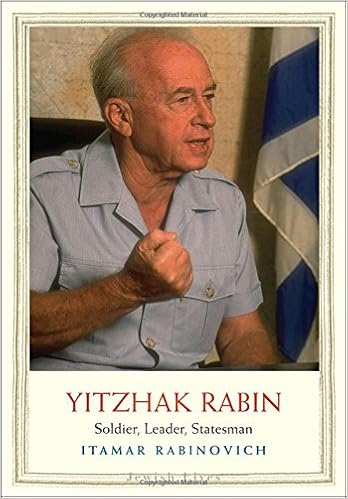
Reviewing Itamar Rabinovich’s recent biography of the Israeli statesman, Dennis Ross notes his own “surprise” at how much he—who as an American envoy to the Middle East had regular interactions with Prime Minister Rabin—learned from reading it. Ross comments on the behind-the-scenes attempts, brokered by Washington, to open negotiations between Jerusalem and Damascus, which broke down just as talks with Palestinian leaders paved the way to the Oslo Accords:
When Secretary of State Warren Christopher presented Rabin’s position [that he was open to a land-for-peace deal involving the Golan Heights] to the Syrian president more as a commitment than a hypothetical possibility, Hafez al-Assad’s response was not to treat it as a historic breakthrough but as a reason to begin to bargain over Israel’s needs. As far as Rabin was concerned, Christopher had gone too far. “He felt,” Rabinovich writes, as if “the rug had been pulled out from under him.” . . .
True, we wanted to preserve the Syrian track, but, in reality, so did Rabin. Part of his pattern was to use each track as leverage against the other, which was perhaps a reflection of what Rabinovich describes as the lesson that Rabin learned from the unhappy experience of negotiating with the Arabs as a collective in 1949. This is a larger point that Rabinovich makes in this very readable and important book: Rabin was a realist who saw peacemaking not as the source of security but as a further development that needed to be based upon security. He understood that demographics argued for separation from the Palestinians. In 1994, he told me that he would build a separation fence. Even though he preferred to negotiate an agreement, he could not count on reaching one with the Palestinians and, one way or another, there would be a partition of the land. . . .
One thing is certain: Rabin could not have made peace by himself. It takes two sides to conclude a genuine peace agreement, and I am dubious that the Palestinians are up to the task. But I am also confident that Rabin would not have let Israel become a binational state. Whether Israel will have the political leadership to prevent that outcome is something that only time will tell.
No comments:
Post a Comment